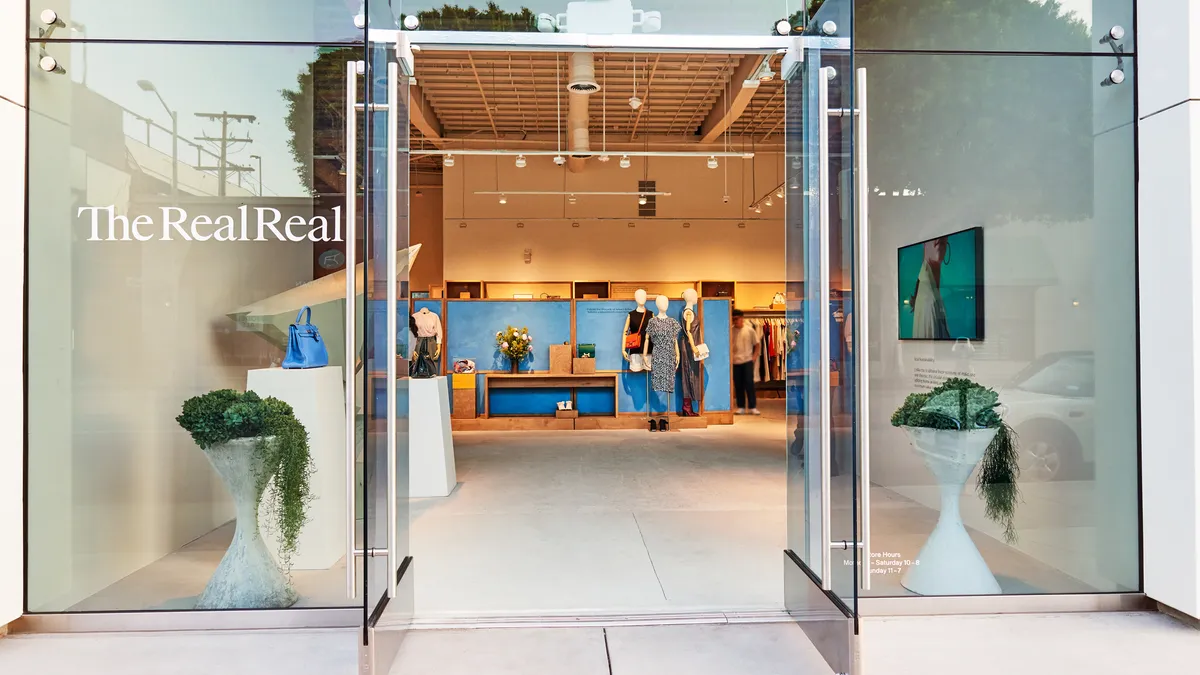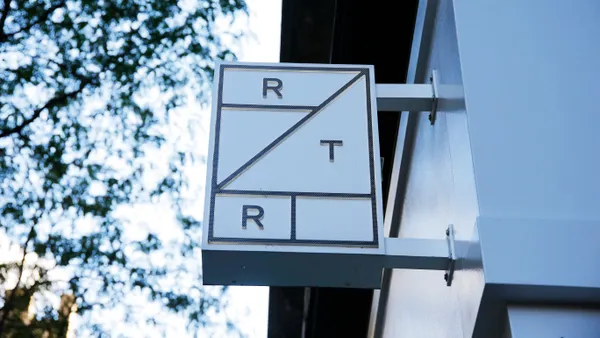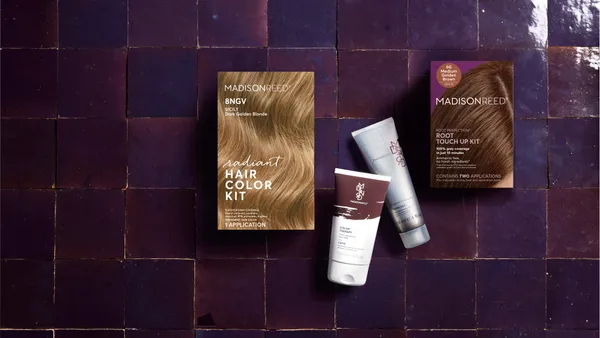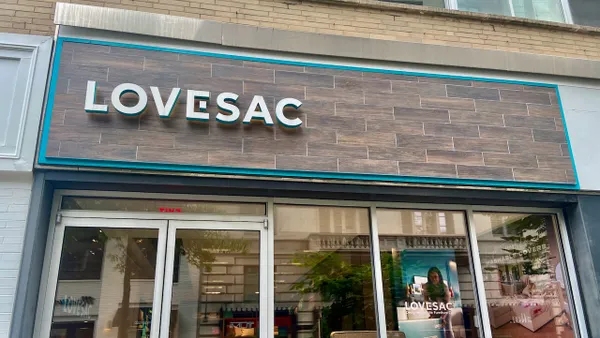UPDATE: June 28, 2019: The RealReal became a publicly owned enterprise Friday morning, trading on the Nasdaq exchange after its leadership rang the opening bell. The company garnered $300 million, at $20 for each of the 15 million shares it sold to institutional investors, after pricing its debut above its previous $17 to $19 range. But the real sign of Wall Street’s confidence in its potential came as trading began, when shares spiked some 45%.
Dive Brief:
-
The RealReal on Friday filed the paperwork for an initial public offering, according to documents filed with the Securities and Exchange Commission.
-
The resale e-commerce business last year processed 1.6 million orders for its upscale second-hand items, 42% more than in 2017, according to the filing. The site's gross merchandise value was $710.8 million, up 44% over 2017, with total revenues of $207.4 million, up 55%, and gross profit of $136.9 million, up 56%. But the company remains in the red, with net loss last year widening to $75.8 million from $52.3 million.
-
The IPO targets $100 million to be raised, under The Nasdaq Global Select Market ticker "REAL," according to the filing. With the close last year of $115 million in Series G financing, The RealReal had previously raised $288 million from investors.
Dive Insight:
Founded eight years ago, The RealReal has operated in the increasingly lucrative resale market, with a focus on luxury goods that sets it apart from many others in the space.
The leading resale sector players are Thred Up, The RealReal and Poshmark, according to a March report from Jane Hali & Associates emailed to Retail Dive.
The RealReal claims to provide the largest selection of pre-owned, authenticated, luxury items — including women's and men's fashion, fine jewelry, watches, fine art and home goods. The company validates the bona fides of its goods through an authentication process. It's an area that makes sense for today's shoppers, according to analyst Jane Hali, the firm's CEO. "The shared economy is a natural for today's consumer," she said, noting that "40% of purchases are not even worn."
So-called "re-commerce" upstarts are growing 20 times faster than the broader retail market and five times faster than off-price retailers, which offer a similar treasure hunt, according to Coresight Research. The total U.S. apparel resale market will grow at a compound annual growth rate of 13% from $18 billion in 2016 to $33 billion in 2021, according to that research. Clothing, shoes and accessories currently make up 49% of total U.S. resale sales, according to Coresight.
"The total addressable market of luxury products in U.S. homes potentially available for resale, including men's and women's apparel, handbags, shoes, watches, jewelry, high-end furniture and art valued below $250,000, is approximately $198 billion according to Frost & Sullivan," according to The RealReal filing.
Many shoppers value the approach. In addition to the ability to obtain items below retail prices, consumers view second-hand shopping as a way to cut down on waste and the harmful impacts of fashion production, according to another Jane Hali report on corporate responsibility from last week that was emailed to Retail Dive.
But it does face some challenges. Although The RealReal says that many brands have blessed its operations, Chanel challenged its assertions through a lawsuit filed last year alleging that the retailer's guarantees are inadequate, to the point where the resale site has sold fake Chanel handbags — claims The RealReal in November told Retail Dive it "unequivocally rejects."
And the market is getting crowded, even in the haute couture space that has differentiated The RealReal. Luxury e-commerce marketplace Farfetch recently entered with its own resale operation, dubbed Second Life, in Europe and the U.K., a move likely enabled by the capabilities it acquired with its purchase last year of upscale sneaker resale company Stadium Goods. EBay also seemed to respond to The RealReal's authentication challenge earlier this year by expanding its own program.
Legacy luxury brands should also take notice, according to Jonathan Treiber, CEO of offer management platform RevTrax.
"This is a major step for the new retail economy. It legitimizes the new wave of retail business models that are disrupting the old guard of primary luxury goods sellers with a model that is popular among the next generation of luxury shoppers who want affordable luxury and are eager to buy quality second hand merchandise to support their philosophies around sustainability and affordability," he said in an email to Retail Dive. "A public market that warmly receives this IPO will send a very strong wake up call to legacy luxury brands that innovation and business disruption is still in its infancy and they need to adapt quickly."












